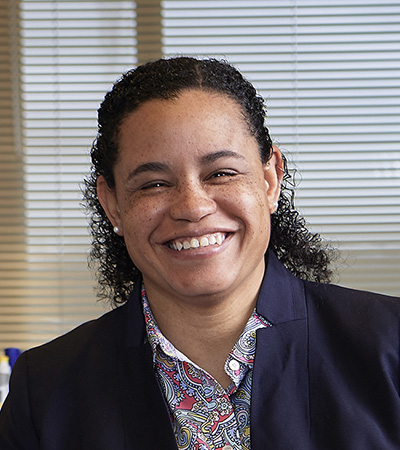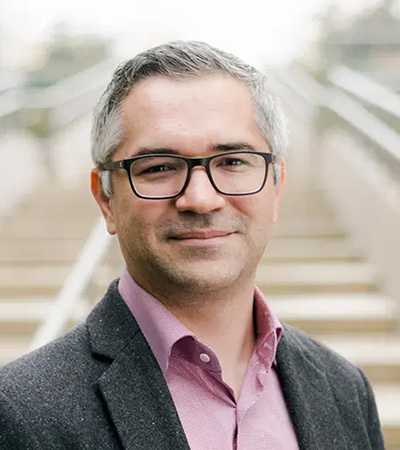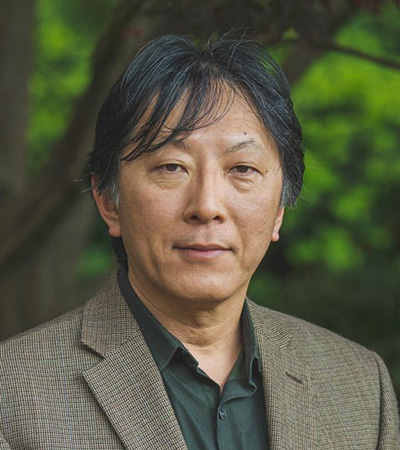Pew names investigators
The Pew Charitable Trusts has 12 new Innovation Fund investigators, including Donita C. Brady, Kivanç Birsoy and Katsuhiko Murakami. This 2024 class will form six partnerships to work on interdisciplinary research projects exploring key questions in life science, human biology and disease.



Brady is an associate professor of cancer biology at the University of Pennsylvania Perelman School of Medicine. The Brady lab explores the role that copper plays in activating proteins that can drive tumor formation. She has received the American Society for Biochemistry and Molecular Biology Herb Tabor Young Investigator Award, the William Guy Forbeck Research Foundation Scholar Award and a V Foundation Scholar Award, along with honors from the Perelman School of Medicine: Linda Pechenik Montague Investigator Award and Michael S. Brown New Investigator Award. Brady is also an associate editor and editorial board member of the Journal of Biological Chemistry. She was named a Pew biomedical scholar in 2016.
Birsoy is an associate professor of metabolic regulation and genetics at Rockefeller University. His lab investigates metabolic changes that occur in cancer cells during tumor formation and metastasis. He has received many awards including the Blavatnik National Award Finalist in Life Sciences, the American Society for Cell Biology Innovation in Research Award, the Mark Foundation Emerging Leader Award and the Vilcek Prize for Creative Promise in Biomedical Science. He was named a Pew biomedical scholar in 2018.
Birsoy and Brady will collaborate to identify components in cells that regulate or respond to transition metal homeostasis. This work will enhance our current understanding of cellular regulation of metals, which is critical in maintaining the delicate balance between metal deficiency and toxicity and preventing disease.
Murakami is a professor of biochemistry and molecular biology at Pennsylvania State University and a faculty director of Huck Cryo-EM facility. His lab uses X-ray crystallography and cryo-electron microscopy to determine structures of cellular and bacteriophage RNA polymerases to understand RNA transcription and regulation. He was named a fellow of the American Association for the Advancement of Science in 2020.
Murakami, who was named a Pew biomedical scholar in 2005, will partner with Gene-Wei Li, an associate professor of biology at the Massachusetts Institute of Technology. They will study transcription termination in cyanobacteria, which could have broad-reaching impacts extending to chloroplasts and other bacterial species.
“An interdisciplinary approach to research is critical to uncovering scientific breakthroughs and making lasting change,” Donna Frisby-Greenwood, senior vice president for Philadelphia and scientific advancement at The Pew Charitable Trusts, said. “Pew is thrilled to support this exceptional group of investigators, whose collective efforts will help move the needle in important areas of health and medicine.”
Enjoy reading ASBMB Today?
Become a member to receive the print edition four times a year and the digital edition monthly.
Learn moreGet the latest from ASBMB Today
Enter your email address, and we’ll send you a weekly email with recent articles, interviews and more.
Latest in People
People highlights or most popular articles

Building a career in nutrition across continents
Driven by past women in science, Kazi Sarjana Safain left Bangladesh and pursued a scientific career in the U.S.

Kiessling wins glycobiology award
She was honored by the Society for Glycobiology for her work on protein–glycan interactions.

2026 ASBMB election results
Meet the new Council members and Nominating Committee member.

Simcox wins SACNAS mentorship award
She was recognized for her sustained excellence in mentorship and was honored at SACNAS’ 2025 National Conference.

From humble beginnings to unlocking lysosomal secrets
Monther Abu–Remaileh will receive the ASBMB’s 2026 Walter A. Shaw Young Investigator Award in Lipid Research at the ASBMB Annual Meeting, March 7-10 in Washington, D.C.

Chemistry meets biology to thwart parasites
Margaret Phillips will receive the Alice and C. C. Wang Award in Molecular Parasitology at the ASBMB Annual Meeting, March 7-10 in Washington, D.C.
